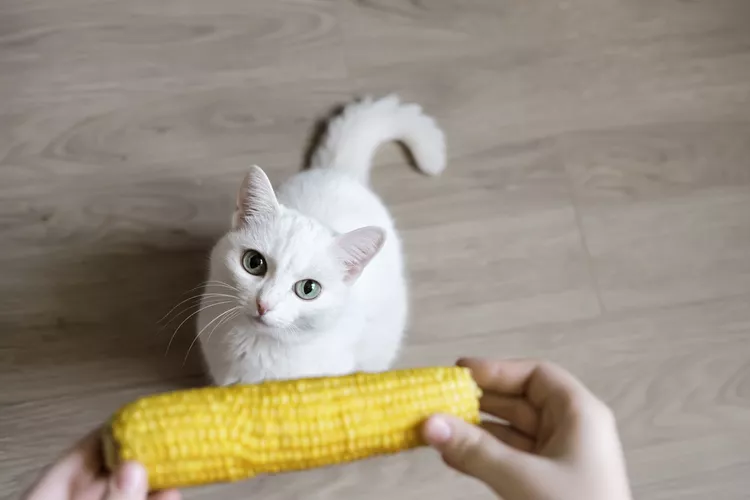
Any dog owner will tell you, dogs can have some quirky behaviors. Things like obsessively devouring socks, trancing under curtains and houseplants, compulsively barking at reflections and light, and yes, even licking your ears. Though ear licking can be a seemingly strange behavior, it's a relatively benign behavior for your dog to develop. So if you're a little weirded out and wondering, "why does my dog lick my ears?", read on for a few possible explanations.
Dogs can become infatuated with ear licking for a variety of reasons. All dogs, whether they are a hairless Chinese crested or a stocky Neapolitan mastiff, are descended from wolves, which are pack animals. Wild animals that live in packs or family units often have complex social structures and just as complex social behaviors to reflect that structure. Oftentimes grooming one another is one of these behaviors that helps give the unit structure.
We've all had that itch we just can't quite scratch. While humans can take care of that hard-to-reach spot with a mass-produced back-scratcher, animals can't. For pack animals or those that live in family units, this is where grooming behavior can come in handy. Almost in a literal "you scratch my back and I scratch yours" exchange, animals in family or pack-structures will groom other animals in areas that otherwise may be difficult to reach. While our ears aren't particularly difficult of an area to reach, your dog may lick your ears as a way to thank you for all the ear scritches you bestow upon them.
In wolves, dogs, and other canid species, grooming can be a sign of submissive respect. A wolf of a lower social rank may groom a wolf of a higher rank as a way to show that animal that they submit to their rank and authority in the pack. Your dog may lick your ears as a way to show that they respect you as a valued and high-ranking member of their family unit. This is especially likely to be the case if you see other classic submissive behaviors, such as crouching down low, exposing their soft belly, and tucking their tail.
Dogs will also groom one another as a way to communicate that they are feeling contented, safe, and that they care for whomever they are grooming. When you dog licks your ears they may just be trying to tell you that they love you and are comfortable when you are around. You can know your dog is licking your ears for this reason if they have a soft face (that is, no tense muscles along the brow line or the muzzle) and relaxed body positioning.
We all know that dogs explore their environment with their noses. It's why they make such great search and rescue animals. What some folks don't realize, though, is that dogs also explore with their mouths. Tasting their world can give them information they may not get from a simple sniff. This is just one reason why puppies like to chew on your furniture, shoes, and even electrical cords. If your dog is infatuated with licking your ears they may just be trying to glean some information about where you've been or what you've been doing.
It's no secret—dogs like to eat some foul things. This can include things like earwax. As gross as it may sound, some dogs just like the taste and the saltiness of earwax. Your dog may like to lick your ears regardless of how clean they may actually be, because, for them, it's delicious.
One final reason your dog may suddenly become obsessed with ears is an underlying medical issue. If another pet in your home gets an ear infection, the smell of their ears can change. Your dog can pick up on this change in smell, which can lead to them investigating the offending odor. It can also stimulate them to lick the ears of the other animal in the same way that your dog will want to lick their own wounds.
For something that's oftentimes relegated to a simple behavioral quirk, there are countless reasons you dog may want to lick your ears. Usually, though, ear licking is simply that: a behavioral quirk.

The First 30 Days With Your New Kitten
The first month is full of changes and excitement for a kitten in a new home. Find out what to expect and what you can do for your new feline friend.
How Old Is Your Cat in Human Years?
As a cat ages, there are often behavioral and physical changes too. Find out how to convert cat years to human years and what to expect at each stage.
What to Buy for Your New Cat: A List of Essentials
Before you bring your new cat or kitten home, there are a number of things to collect or buy so your cat will feel welcomed like a family member.
Human Foods That Are Poisonous to Cats
Many human foods are toxic to cats. Avoid feeding cats table scraps. Instead, feed a nutritious cat food created for their specific nutritional needs.
Cat Food Ingredients to Avoid
When checking the nutrition content of cat food, look for ingredients that are not healthy or show it is of poor quality. Avoid these 3 ingredients.
Should You Feed Your Cat a Raw Diet?
Learn the pros and cons of raw diets for cats, and find out how to choose a raw food diet for your own cat.
Can Cats Eat Corn? Here's What A Vet Thinks
Corn is a common ingredient in cat food and can be a safe treat for cats when fed in moderation. Find out more about how to safely feed corn to your cat.
10 Obscure, Little-known Canine Facts in Honor of National Dog Day
With National Dog Day upon us, it's time to celebrate everything about our favorite pets—even the weirder stuff. Here are 10 obscure facts about dogs you probably didn't know.
The Different Types of Pet-Friendly Workplaces
Discover the different types of pet-friendly workplaces and the benefits they offer employees. Learn how to create a pet-friendly workplace and the best practices for pet owners.
Exploring the Different Types of Pet-Friendly Beaches
Are you looking for pet-friendly beaches? Learn about the different types of pet-friendly beaches, their locations, and tips for visiting them with your pet.
Why Is My Dog Lethargic?
Lethargy can be a sign that something is wrong with your dog. Find out what may be causing this lack of energy and what you should do about it.
Medications to Prevent Heartworm Disease for Dogs
Heartworm disease is a serious risk for all dogs exposed to mosquitos. Find out about the products used to prevent Heartworm disease in dogs.
Can My Dog Eat Tomatoes?
You'll want to keep Fido out of your garden since the tomato plant is toxic, but you can safely offer him ripe tomatoes as a nutrient-packed treat.
15 Best American Cat Breeds
Several cat breeds, including the American shorthair and Bengal, have their origins in the United States. Learn more about these American cat breeds.
Why Do Cats Slap Each Other?
Cats can have some quirky behaviors—one of them being slapping each other. Why do they do this and what can you do to stop it?
Skye Terrier: Dog Breed Characteristics & Care
Learn all about the Skye Terrier, an elegant breed known for its friendly and even-tempered personality with classic terrier traits.
Sloughi: Dog Breed Characteristics & Care
Learn all about the Sloughi, an ancient dog breed known for its impressive running ability, slim stature, and affection toward its family.
English Setter: Dog Breed Characteristics & Care
Learn about the English setter, an excellent hunting breed for pointing and retrieving game. It's also a popular and affectionate companion dog.
Why Dogs Bury Bones and Other Objects
If you give a dog a bone, he might bury it. Why is that? Learn about this burying behavior in dogs and what it means for your pet.
Reasons Why Dogs Run Away and How to Stop It
Dogs can escape, especially if they’re bored and not properly contained. Here are some techniques for stopping your dog from running away.